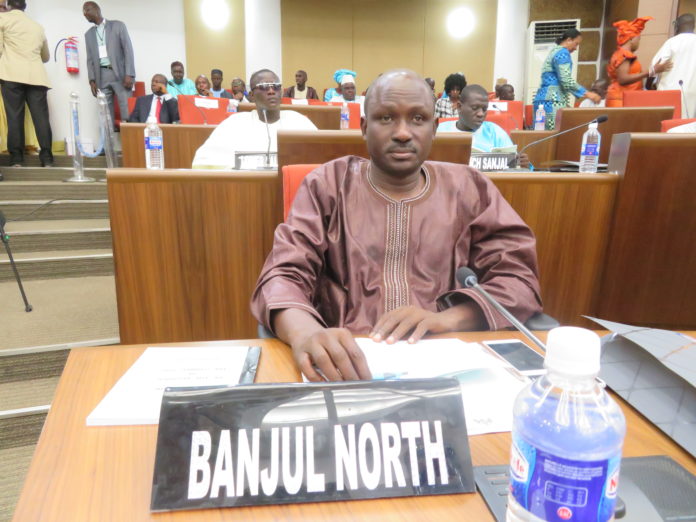By: Kebba AF Touray
Ousman Sillah, the Member for Banjul North and Chairperson of the National Assembly Select Committee on Health, told his colleague Deputies that although there is no reported case of the COVID-19 in the Gambia as at now, they should not allow any room for complacency.
Sillah said this yesterday Tuesday March 17th at the National Assembly while presenting the Report of the Health Committee from the entry points they visited in the country, to assess the level of preparedness in the prevention of Covid-19, for consideration and adoption by the Lawmakers.
The visit he said was in fulfillment of the Committee’s statutory mandate to perform their oversight functions in the health sector, which is under their purview and any health related issue concerning the country such as the current outbreak and public health emergency of COVID-19.
Mr. Sillah said the committee visited and held engagements with officials of the Banjul International Airport and Seaport, the Sanatorium, Edward Francis Small Teaching Hospital (EFSTH) and the Amdalai and Giboro Border Posts.
He said the committee observed among other things, that the dock workers at the seaport do not put on protective gears and that no arrangement for hand washing has been put in place for incoming travellers at the Giboro Border Post; that the designated holding center should be rehabilitated to high standards and in a conducive location, instead of being in close proximity to the sanatorium where patients with respiratory related illnesses are admitted.
Mr. Sillah said the committee recommended among other things the policy of putting on protective masks, having adequate supplies of protective materials and temperature testing equipment, provision of mobility for health officers on standby, deployment of more public health officers at all border posts and the payment of risk allowances and incentives for health workers in managing suspected cases. He said the committee recommended more training and step down capacity information for nurses, doctors, drivers, cleaners and the security and to increase the provision of water supply and ventilation systems for sanitary and health purposes, the sufficient provision of proactive materials such as masks, disposable gloves and detergents.
“The committee also called on the Finance Ministry and partners to support the Health Ministry in its request for resources, to response and preparedness efforts towards the outbreak. There is no cause for alarm as no suspected case of COVID-19 or coronavirus has been reported in the country. However, we should not be complacent as a country but should be ever more vigilant to ensure that the high contagious disease does not enter our shores or that any reported case be contained with immediacy,” Mr. Sillah said.
Members who took part in the debate hailed the committee for their foresight and urged them not to limit their visit to Greater Banjul Area and West Coast Region only, but to other regions across the country as well. The Committee was also called upon to indicate a timeline for the implementation of their recommendations in the fight against COVID-19.
Some Members dismissed the Committee’s recommendation that EFSTH be used as a referral center for suspected cases; that this will make the citizenry more prone to COVID-19. They suggested that affected individuals from affected areas be quarantined and accommodated elsewhere. Members also called for the need to reinforce all health centers across the country to deal with the situation when the need arises and urged the public to be vigilant and report any suspected cases of the disease.
Members also call for the media to give accurate information to the public with a view to report reliable and factual information to the citizenry; that testing mechanism and facilities should be provided at all entry points and public places to prevent and provide safety for everyone.
Deputies called for intensive sensitization programs on radio and in schools, provision of quarantine centers at borders and the empowerment of public health workers with the requisite material such as emergency ambulances and hotlines for timely transportation of suspects, to avert the prevalence of the disease in the country.
After six hours of intensive debate of the Committee’s report, it was unanimously adopted by Deputies.





















